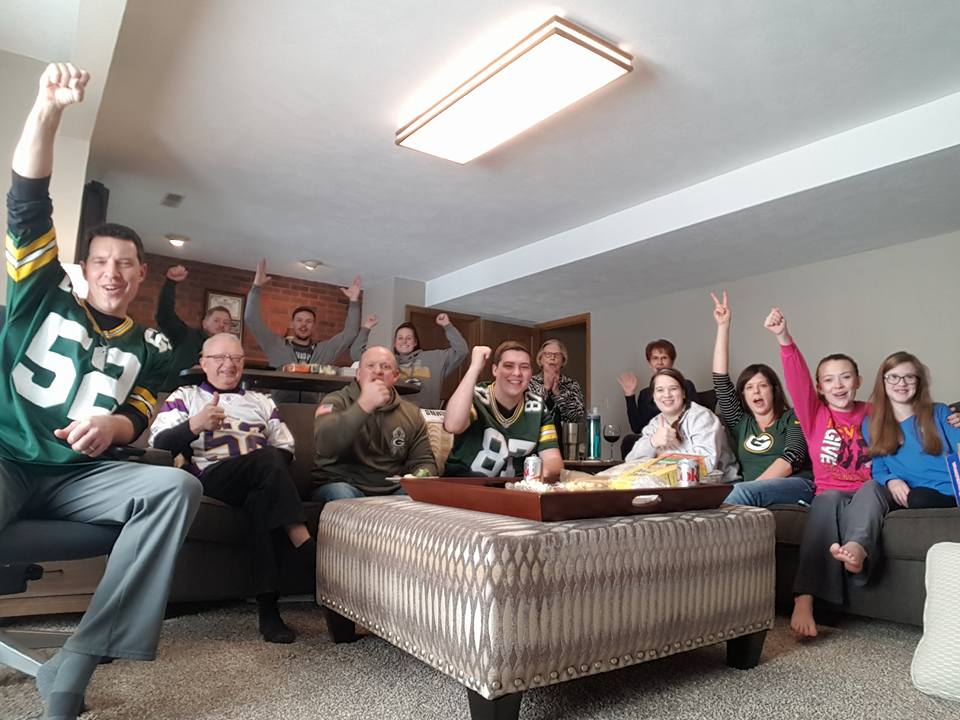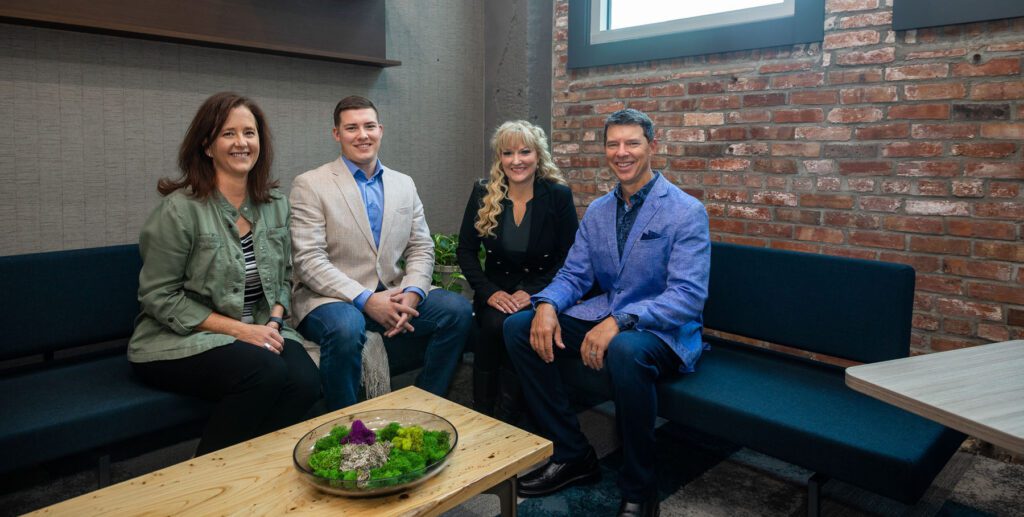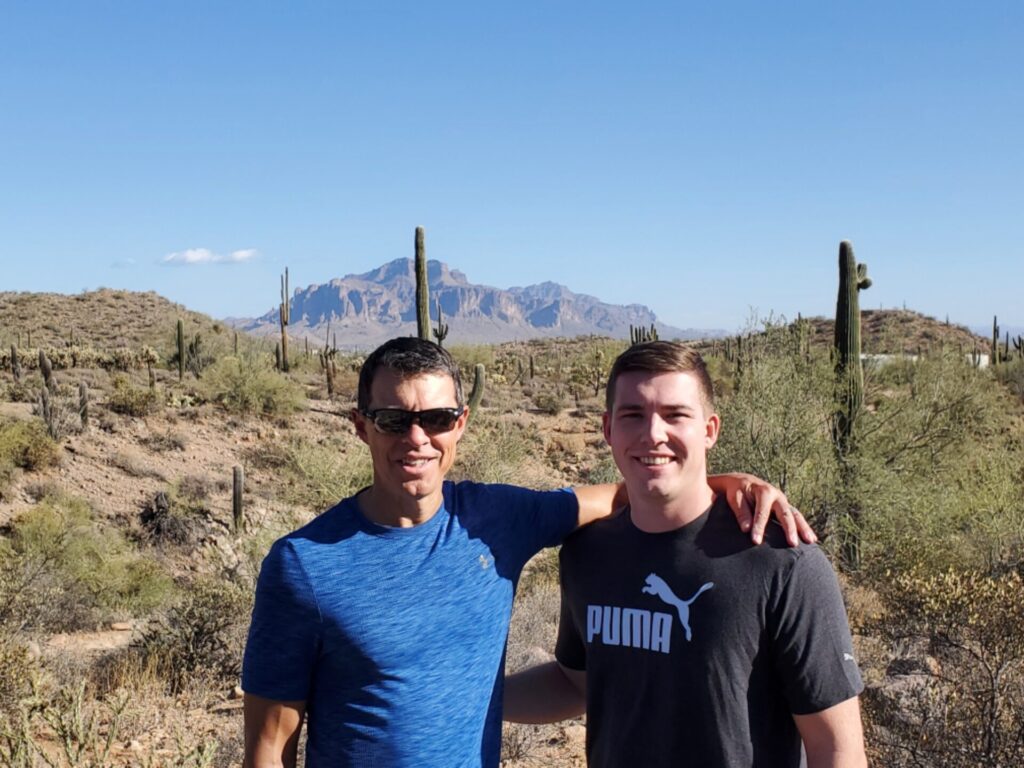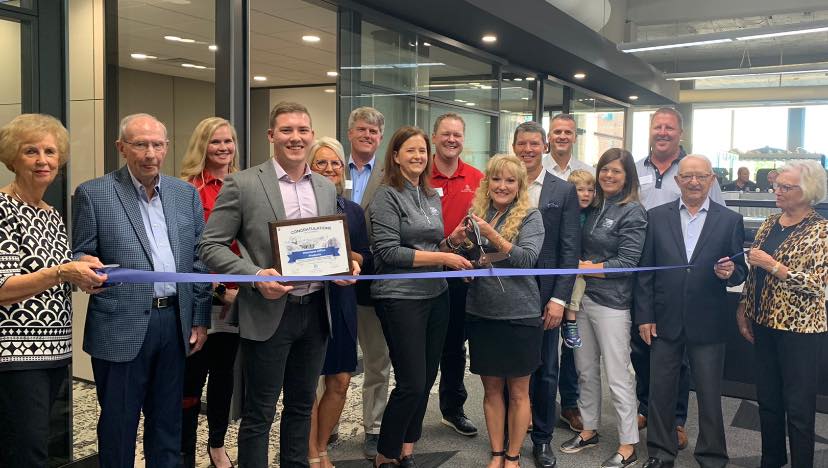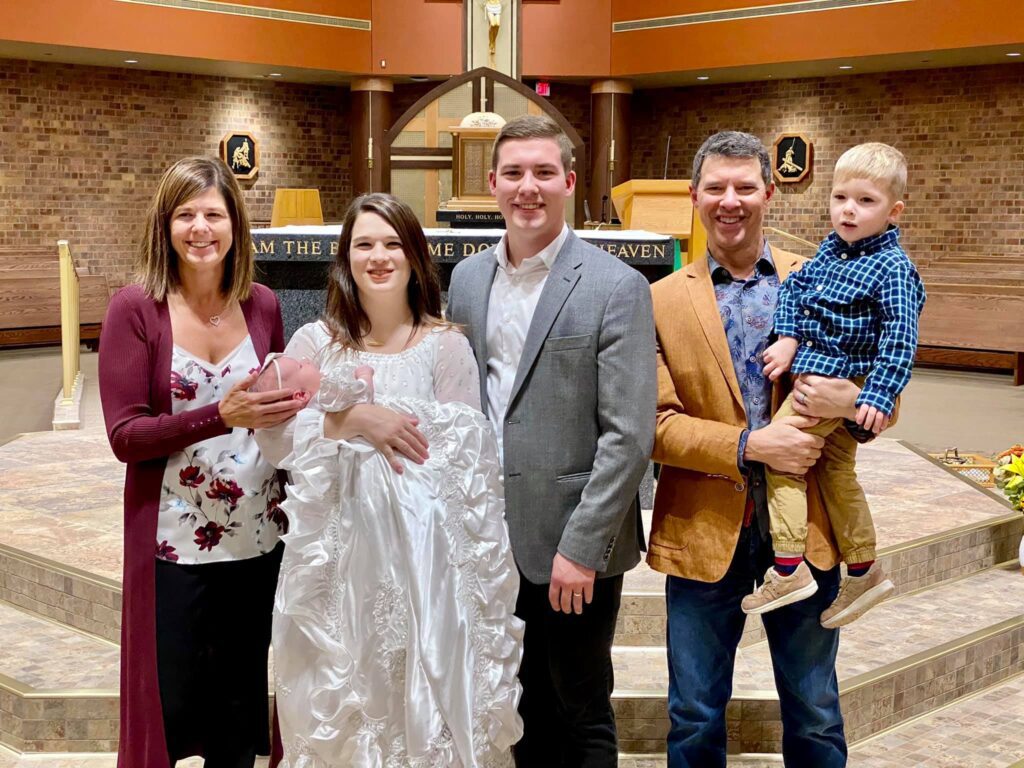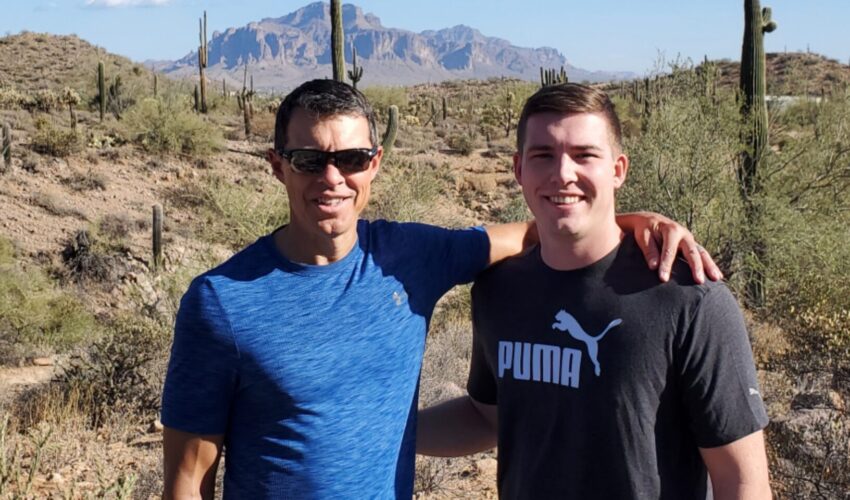The Gaspar family: From grief to action
Oct. 11, 2023
This paid piece is sponsored by Avera Health.
Gary Gaspar was success-minded and goal-oriented. With anything he did in life, he wanted to be the best at it, whether it was auto racing or leading the family business of Interstate Office Products. Friendly and charismatic, he had a knack for connecting with people on a personal level.
Yet he also suffered from back issues and peripheral neuropathy. Only those closest to him knew about the chronic pain and physical discomfort that led to depression and anxiety.
“He wanted to put on a strong face and act like nothing was wrong,” said his son, James, who is following in his father’s footsteps as vice president of Interstate Office Products.
Although debilitated by physical and mental suffering, Gary carried on in his leadership role at work and in the community. His death by suicide on March 8, 2022, was the sad and unexpected outcome of his condition.
Gary’s family members are speaking out on behalf of suicide prevention, including Avera’s Ask the Question campaign, because they don’t want any other family to feel the pain they have experienced.
“We want to let people know that there is no shame in reaching out for mental health help,” said his wife, Theresa Gaspar. “From all appearances, Gary should have had every reason to want to live. He had a great marriage and family, a strong faith, a successful business, financial security, and he was a well-respected member of the community often called on to use his talents to serve on boards.”
This included the Avera Health board of directors, Greater Sioux Falls Chamber of Commerce, Bishop O’Gorman Catholic Schools, Junior Achievement and more.
“Depression drives people to very dark places and to do something that’s not what they would choose,” James said.
Sheila Casiello, Gary’s sister, owned the business with Gary and shared an office with him. She realized her brother was in difficult straits, but she didn’t realize he was considering suicide. “I still can’t believe it. It just goes to show you it could be anyone,” she said.
“It’s just very sad,” Sheila said. Asking “What if I had done this?” or “What if I had said this?” doesn’t change the fact that he’s gone. “What we can do is exactly what we are focusing on,” which includes giving back to the community and sharing a message of prevention and hope.
How to Ask the Question
Theresa said it took Gary a long time to accept that he needed to talk to someone to work through his issues.
“Unfortunately, it was too late for him. In the few months prior to Gary taking his life, I often asked him if he was thinking about harming himself, but I never used the word suicide. We need to normalize the conversation around mental health and remove any stigma associated with it. People need to know that it is OK not to be OK and that there are resources to help them get through whatever they are struggling with.”
If someone is struggling with depression, they might lose interest in things they once enjoyed. They might talk about feeling hopeless or wishing they were dead. They might sleep a lot or very little. They may slip in their performance at school or work.
Avera’s Ask the Question campaign is built on research that asking someone directly if they are considering suicide can open the door to an honest conversation that might save a life.
It’s part of a conversation, said Thomas Otten, assistant vice president of Behavioral Health Services at Avera. “It doesn’t have to be the first question, but it’s an important question to include in conversation.”
If the person says yes, don’t focus on your own shock, Otten advises. Be ready to recommend helpful resources, including the 24-hour 988 Suicide and Crisis Lifeline. In Sioux Falls, people in crisis can go to Avera Behavioral Health Urgent Care, which is open 24/7.
“Our team is here and ready to help,” Otten said. “We will see people where they’re at and address any needs they have, whether that’s talking with a counselor, seeing a psychiatrist or getting admitted for inpatient care.
“Human behavior is impossible to predict, so suicide is not always predictable,” Otten said. Families who have lost a loved one should not feel at fault but should pursue counseling and support needed to deal with what they’re feeling, whether that’s sadness, anger, guilt or all of the above.”
Families can find help, Theresa said. “Living with someone who is struggling with depression and anxiety is extremely difficult on the family. You feel helpless and hopeless, and you don’t know where to turn,” she said. “There are so many resources available in our community. I pray that no one else would have to live with the kind of devastation and lasting scars that my family will have to live with due to Gary’s death by suicide. All of us that loved him live with some level of regret that we couldn’t save him.”
Finding peace after a suicide
James has experienced every stage of grief, from shock to anger to guilt.
“Ultimately, I’ve been able to process through those emotions and find peace – the peace of knowing that Gary is not suffering anymore,” he said.
He cherishes memories like hiking in the Arizona desert with his dad, being mentored and developed in those informal conversations along the 8-mile route.
Beyond family and business, Gary left a legacy in the community.
“Gary loved the Sioux Falls community and was always willing to share his talents to help make Sioux Falls a better place to live,” Theresa said.
He put his all into serving on numerous boards, she added.
“If you asked him to serve, he was going to serve to the best of his ability. My hope is that Gary will be remembered for these contributions and that others will be inspired to use their talents to give back to make our community a better place for everyone who lives here.”
The Gaspar family also know that Gary would have wanted his story to be shared to help save others. And families in crisis have indeed contacted them. “We have offered a shoulder to cry on and helped people who needed it,” James said.
“My visibility in speaking out and advocating for suicide prevention has caused people to come to me and share their darkest secrets – their concern for their own mental health or that of a loved one.”
A stigma still exists, but it’s getting better, Sheila recognizes. “People are more willing to talk about it.”
However, people who find themselves struggling might fear what others would think. They might fear that someone might see them walk into a behavioral health facility.
“But you know what? What if someone sees you? Big deal. You need help,” Sheila said. Someone might just need to hear “It’s OK, and we’re here to help.”
Learn more at Avera.org/AskTheQuestion.

